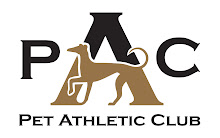But while Reid coped with the stress of a hospital room, he couldn’t handle fireworks.
“We were staying at a place by a beach where the fireworks were going on,” said O’Dierno of Portland, Ore. “He went nuts and hid behind chairs.”
The situation repeated itself at other celebrations until O’Dierno realized that her dog had a fireworks phobia: “His eyes would pop open, and you could see the fear when the fireworks go off.”
Experts haven’t figured out why some pets are sensitive to fireworks, but some think the smell of gunpowder may add to jitters caused by loud explosions.
Cesar Milan, trainer and host of the National Geographic Channel’s “Dog Whisperer” show, says getting a dog ready for fireworks can take months.
At Behave Canine Solutions, a company that offers dog-training classes in the Portland area, dogs in the Puppy Preschool program spend a day training for fireworks. The process involves integrating sound, smells and displays into fun activities such as playing or eating.
“What a dog is or isn’t exposed to, especially in the first 16 weeks, can affect their behaviors for the rest of their lives,” said trainer Denise Mullenix. The class moves puppies to different stations that play sounds of fireworks, expose them to smoke balls and burning charcoal, and bring them near sparklers and bright flashes.
Each step, Mullenix said, is designed to “minimize stress and anxiety in situations of exposure to fireworks.”
Owners can also train their dogs at home. Milan plays recordings of fireworks at a low volume during an activity that the dog enjoys.
Continue introducing sounds of explosions for several weeks, increasing the volume with time.
“Involve the sound into positive activities such as eating, at a low sound, or walking with your dog, so the dog becomes familiar with the sound while doing an activity that he enjoys,” Milan said.
The dog is conditioned when it stops exhibiting signs of anxiety and it’s comfortable when the recording can be played loudly, said Pam Reid, who works with the American Society for the Prevention of Cruelty to Animals to educate pet owners and professionals.
If owners don’t have months for training, veterinarian Robert Raider says other help is available. Take the pet for a checkup at least a week before the big day, and then return to the vet for sedatives if the dog is given a clean bill of health.
Some experts consider sedatives a last resort. But those who own anxious pets shouldn’t hesitate.
If owners find themselves unprepared on the holiday, they should forget the fireworks and concentrate on the dog, Milan said. If you’re in a park or an open area, keep the dog calm by remaining calm yourself.
Reid suggests getting the dog indoors as quickly as possible. If you drove, get into your car and sit with the dog.
“Get them to calm down, then mask the noise. Turn on the air conditioning or the radio,” Reid said.
If you’re indoors when the dog panics, Reid suggests giving it a hollow chew toy filled with processed cheese or peanut butter. “Some dogs are OK as long as they have something to lick or chew,” she said, likening the effect to a baby’s sedation from pacifiers.
On past Fourths, Milan said, he in-line skates with his dogs or takes them backpacking. He suggests doing an activity the pet will enjoy: Let the dog have its day.
“Anything that can involve relaxation and fun, because that’s what you want the dog to learn,” Milan said. “Relax and have fun on the Fourth of July. That’s what people do, right? They relax and they have fun.”


No comments:
Post a Comment